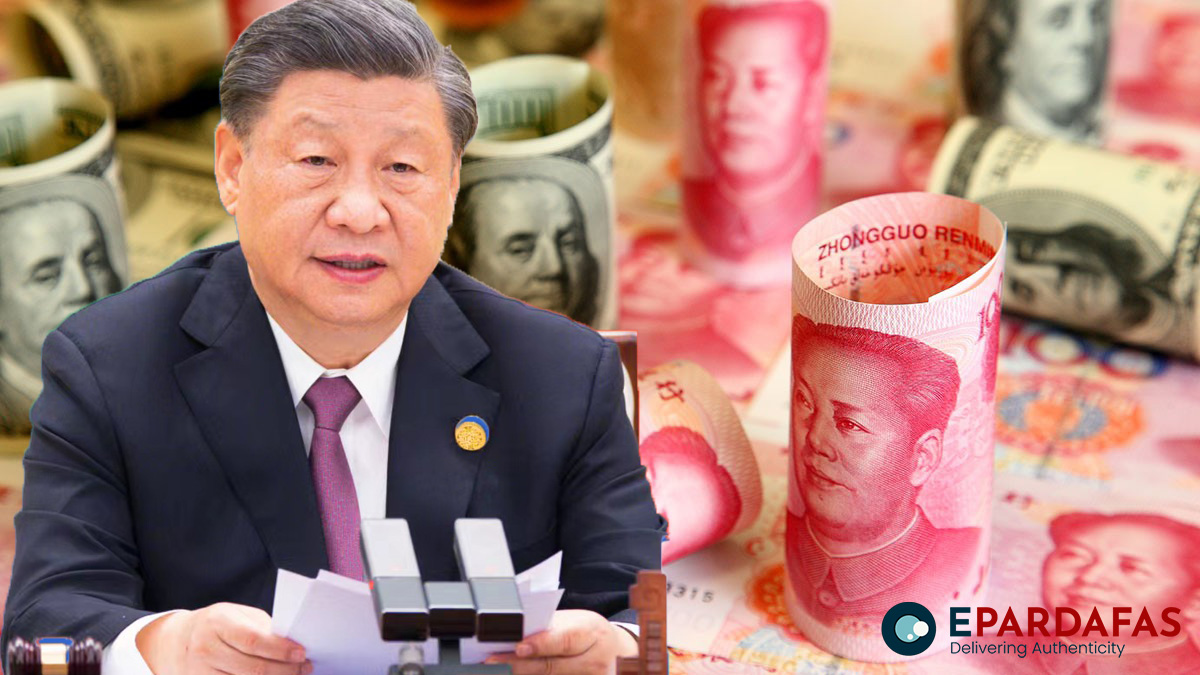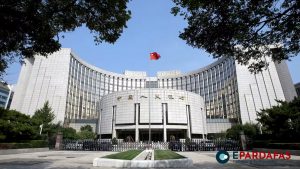
China’s Economic Data Under Scrutiny: A Closer Look at Fabrication and Concealment

China, touted for its economic prowess, is now under scrutiny as allegations of manipulated economic data come to light. The Chinese Communist Party (CCP) has long presented a picture of stable economic growth, but skeptics argue that these numbers lack substance and authenticity. The accusations range from fabricated GDP figures to the concealment of crucial economic data, raising questions about the credibility of China’s economic narrative.
Fabricated Data Unveiled
Li Jun, an independent Chinese TV producer, recently disclosed on NTD’s program “Pinnacle View” that several provinces, including Henan, Fujian, Hunan, and Jiangxi, manipulated their GDP figures. According to Li, Henan Province’s GDP in 2023 was projected to show negative growth. However, the regime allegedly manipulated the 2022 figures, creating the illusion of positive growth in 2023. Similar tactics were employed by other provinces, reducing their 2022 GDP figures to showcase growth in 2023.
Li Jun specifically pointed out the case of Henan, claiming that the reported GDP growth for 2022 was artificially inflated. To portray economic growth in 2023, the CCP allegedly reduced the 2022 GDP figure by over 300 billion yuan (about $41.7 billion). The cumulative reduction in GDP figures across multiple provinces raised suspicions, as the numbers presented by the CCP did not align with the alleged over-calculation claimed by the state.
Concealing the Truth
Frank Tian Xie, a business professor at the University of South Carolina Aiken, explained that the practice of publishing fraudulent figures has a long history in China. The CCP began manipulating economic data during China’s “reform and opening up” period in the late 1970s. Initially, the shift to measuring economic growth by GDP aimed to gauge the political performance of Party officials and attract foreign investment. However, over time, foreign investors grew skeptical of these figures, leading to a decline in trust.
Professor Xie highlighted the CCP’s refusal to allow foreign market research firms to conduct independent research in China. This lack of transparency has fueled suspicions about the accuracy of China’s GDP figures, inflation rates, per capita income, and other economic indicators. The professor argued that the CCP’s insistence on controlling the narrative prevents objective assessments and allows for continued data falsification.
The CCP’s Control Mechanism
Guo Jun, president of the Hong Kong edition of The Epoch Times, emphasized the role of China’s National Bureau of Statistics as a political tool wielded by the CCP. The growth figures are set by CCP elites in Beijing, and all levels of government and departments are expected to align with these targets. Guo Jun revealed that local governments create GDP growth figures based on the predetermined targets, giving statistics bureaus discretionary power to adjust these figures.
Apart from GDP growth, Guo Jun highlighted that various other data points, including planned births, population figures, employment data, and even death statistics, are subject to the regime’s political agenda. The centralized power structure and the top-down hierarchy of the CCP leave little room for negotiation, and low-level officials are obligated to follow orders unconditionally.
Challenges to CCP Legitimacy
Shi Shan, a senior writer and contributor to The Epoch Times, pointed out the perennial problem of legitimacy faced by the CCP’s top leaders. With a lack of ethical leadership at the highest levels, information from CCP elites is often fabricated, leading to a cascade of falsified data throughout the regime. Shi Shan argued that the CCP relies on propaganda to maintain its power, as the authoritarian rule lacks inherent legitimacy.
In conclusion, the allegations of fabricated and concealed economic data in China raise serious concerns about the credibility of the CCP’s narrative on stable economic growth. The lack of transparency, control mechanisms, and a history of manipulating data contribute to growing skepticism among both domestic and international observers. As China grapples with economic challenges, the accuracy of its economic data becomes increasingly critical for informed decision-making and global economic stability.












Comments